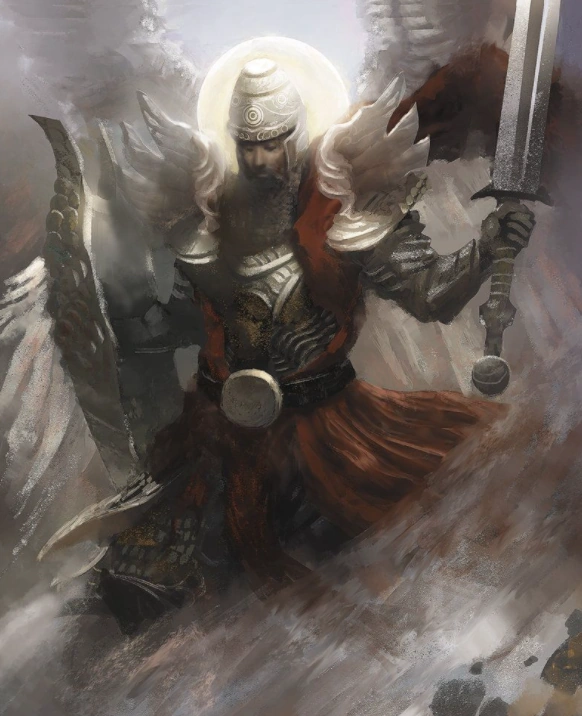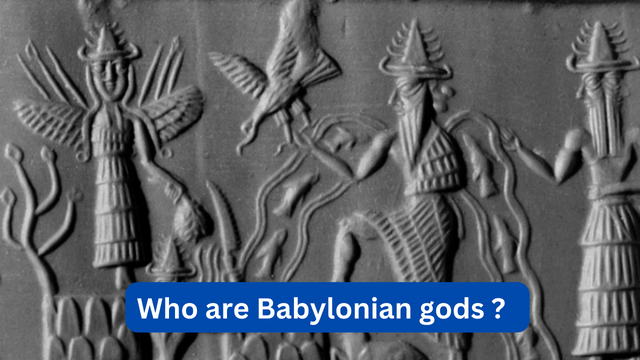The Babylonian pantheon is a pantheon of shared gods. It is difficult to identify an original Babylonian deity other than perhaps Marduk or Nabu. Given how Babylonia was influenced by ancient Sumer, it’s no surprise that this pantheon of gods is shared between the two cultures. Not only that, the Assyrians and Akkadians also contributed to Mesopotamian religion and all of this influenced the Babylonian belief system.
Marduk
Marduk is considered the primary god of Babylonia and one of the most central figures in Mesopotamian religion. He was considered the national god of Babylonia and was often referred to as “the Lord”. In the early stages of his cult, he was seen as a storm god. As is usually the case with ancient deities, beliefs changed over time. The cult of Marduk passed through several stages. He was known as the Lord of 50 different names or qualities that give meaning to the suffering he endured during wars, famines, and diseases and explain the continual dramatic events that interrupted his life, learning, and predictions.
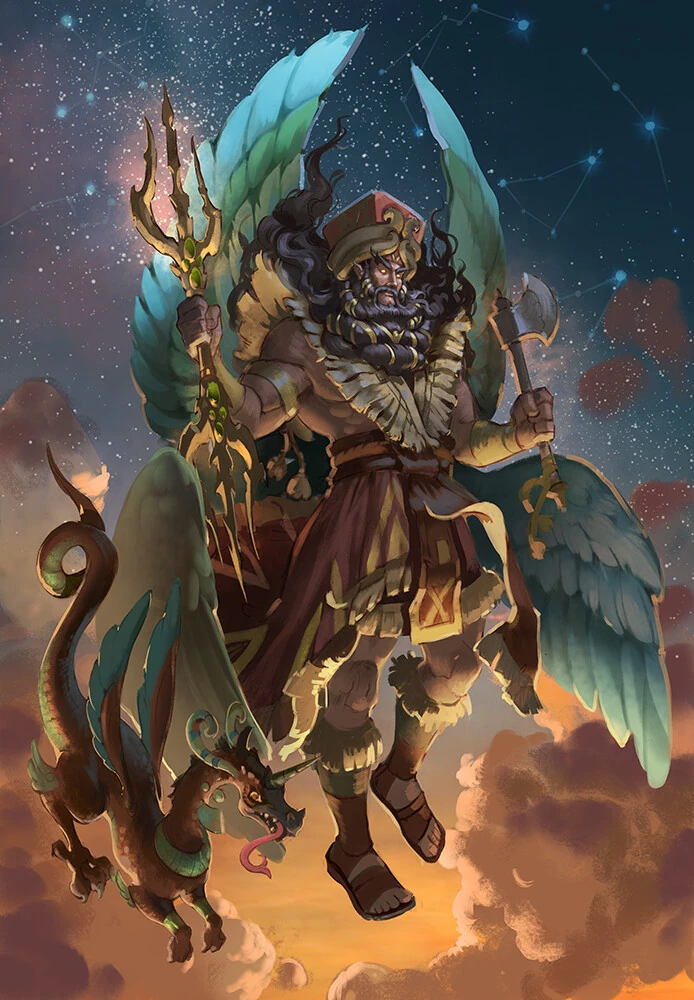
Ereshkigal
Ereshkigal was an ancient goddess who ruled the underworld. Her name translates as “Queen of the Night”, which alludes to her main purpose, which was to separate the worlds of the living and the dead and ensure that the two worlds never cross each other’s path. The underworld was believed to be under Sun Mountain. He ruled in seclusion until Nergal/Erra, the god of destruction and war, came to rule with him for half a year each year.

Nisaba
Nisaba is often compared to Nabu. She was an ancient deity associated with accounting, writing, and being the scribe of the gods. In ancient times, she was also the goddess of grain. She is an enigmatic figure in the Mesopotamian pantheon and was represented only as a grain goddess. There is no depiction of her as the goddess of writing. Once Hammurabi took over the reins of Babylon, his cult declined and lost its prestige and was replaced by Nabu.
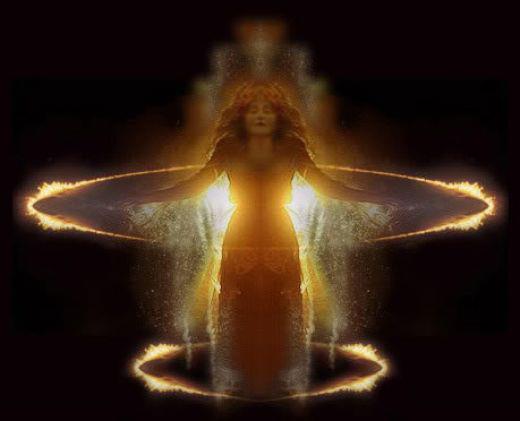
Ningal
Ningal was an ancient Sumerian goddess of reeds, but her cult survived until the rise of Babylon. Also known as Nanna was the god of the moon and the wife of cattle herders. She was a beloved goddess who was worshiped in the city of Ur. Her name means “queen” or “noblewoman”. She was the daughter of Enki and Ninhursag.

Enlil
Enlil is an ancient Mesopotamian god dating back to the Babylonian era. He was a Mesopotamian god of air, wind, earth, and storms and is believed to have been one of the most important gods of the Sumerian pantheon. Being such a powerful god, Enlil was also worshiped by the Akkadians, Assyrians, and Babylonians. He had temples built throughout Mesopotamia, especially in the city of Nippur, where his cult was strongest.

Anu
Anu was a divine incarnation of Akash. Being the ancient supreme deity, he was considered by many cultures in Mesopotamia to be the progenitor of all people. This is the reason why he was not worshiped as other deities, as he was considered more as an ancestral deity. The people of Mesopotamia loved to worship her children. Anu is described as having two sons, Enlil and Enki. Sometimes Anu, Enlil, and Enki were worshiped together and were considered a divine triad. The Babylonians used his name to denote different parts of the sky. He called the space between the zodiac and the equator “the path of Anu”.
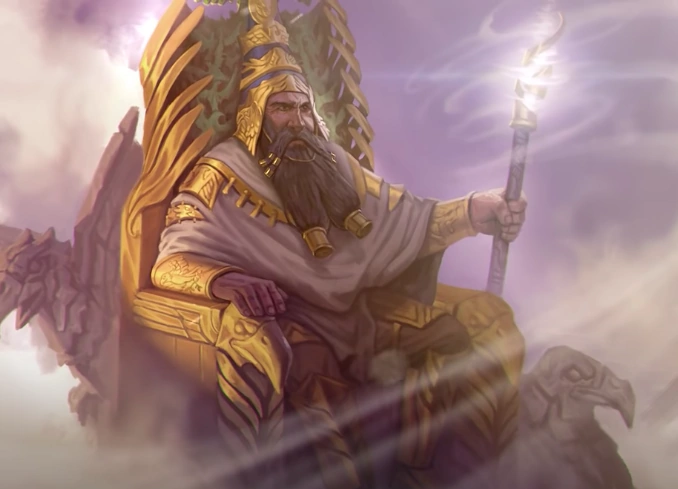
Apsu
The worship of Apsu began during the Akkadian Empire. He was considered the god of water and a primordial ocean that surrounded the earth. Apsu is also depicted as the first deity who then took control and became the main deity. Apsu is also described as an ocean of fresh water that existed before anything on Earth. Tiamat wanted to avenge Apsu’s death and created vicious dragons that were killed by the Babylonian god Marduk. Marduk then takes on the role of creator and creates the Earth.

Enki
Enki was also one of the major gods of the Sumerian religion. He was also known as Ea or Ai in ancient Babylon. The god of magic, creation, crafts, and mischief was Enki. He is considered one of the older gods in Mesopotamian religion and his name translates as Lord of the Earth and wife of the goddess Ishtar/Inanna.
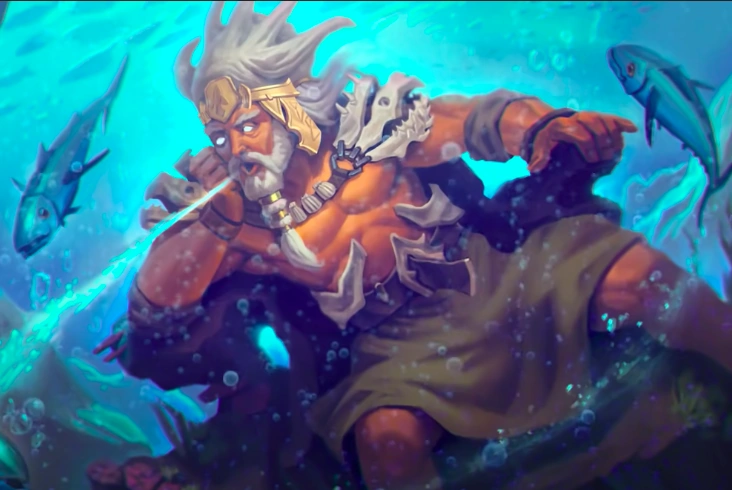
Gestinanna
Geshtinanna was an ancient Sumerian goddess associated with fertility, agriculture, and the interpretation of dreams. Geshtinanna was The sister of Dumuzid, the protector of the shepherds. Each year, when Dumuzid ascends from the underworld to take his place by Ishtar, Geshtinanna takes his place in the underworld for half a year, resulting in a transformation.

Ninurta
He was an ancient Sumerian and Akkadian god of war. Depicted as the god of the hunt, also sometimes called Ningirsu. Son of Ninhursag and Enlil. Babylonians believed that he was a brave warrior riding a scorpion-tailed lion.
